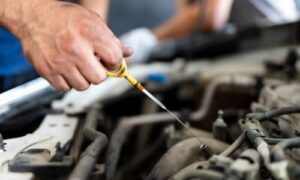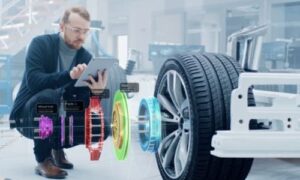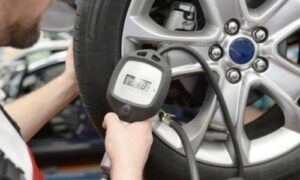Hybrid cars have gained significant popularity in recent years due to their unique combination of an internal combustion engine and an electric motor. Individuals can make informed decisions that align with their preferences and needs by understanding the pros and cons of hybrid cars. Individuals can make informed decisions that align with their tastes and needs by understanding the pros and cons of hybrid cars. This article will explore hybrid vehicles’ various pros and cons, providing valuable insights for those considering purchasing one.
Introduction
Hybrid cars, or hybrid electric vehicles (HEVs), utilize an internal combustion engine and an electric motor. This combination allows for improved fuel efficiency, reduced emissions, and the potential for cost savings. In this article, we will delve into the pros and cons of hybrid cars, shedding light on their environmental benefits, technological advancements, and potential drawbacks.
Pros of Hybrid Cars
Environmentally Friendly
Hybrid cars offer significant environmental advantages compared to conventional vehicles. By utilizing electric power and regenerative braking, they reduce fuel consumption and lower greenhouse gas emissions. Efficient energy use contributes to a cleaner and greener environment, making hybrid cars a favorable choice for eco-conscious individuals.
Increased Fuel Efficiency
One of the primary benefits of hybrid cars is their superior fuel efficiency. Integrating an electric motor allows these vehicles to consume less gasoline than traditional cars. This leads to fewer trips to the fuel station and reduces the overall carbon footprint.
Reduced Emissions
Combining an electric motor and internal combustion engine in hybrid vehicles reduces emissions of greenhouse gases and harmful contaminants such as carbon dioxide, nitrogen oxides, and particulate matter. Hybrid cars emit fewer pollutants into the atmosphere compared to conventional vehicles. By choosing a hybrid car, individuals can actively contribute to air quality improvement and mitigate the negative impact of transportation on the environment.
Regenerative Braking
Another advantage of hybrid cars is regenerative braking. This technology allows the electric motor to capture and convert kinetic energy generated during braking or deceleration into electrical energy, which is then stored in the battery. This energy can be utilized later to power the vehicle, reducing the reliance on the internal combustion engine and improving fuel efficiency.
Potential Cost Savings
Although hybrid cars often have a higher upfront cost than conventional vehicles, they can offer long-term cost savings. The increased fuel efficiency means spending less on gasoline, resulting in significant savings over time. Moreover, some countries and regions provide tax incentives, rebates, and lower registration fees for hybrid car owners, further enhancing the financial benefits.
Cons of Hybrid Cars
Higher Upfront Cost
One of the main drawbacks of hybrid cars is their higher initial purchase price compared to traditional vehicles. Hybrid systems’ advanced technology and components contribute to the increased cost. However, it’s essential to consider the potential long-term savings in fuel expenses and the environmental benefits when evaluating the overall value of a hybrid car.
Limited Model Options
While the popularity of hybrid cars has been steadily increasing, the range of available models and vehicle types may be more limited compared to conventional cars. This limitation can affect individuals who have specific preferences or requirements for their vehicle, such as size, style, or particular features.
Battery Lifespan and Replacement Costs
The battery packs used in hybrid cars have a limited lifespan and will eventually need to be replaced. The battery replacement cost can be a significant expense, although technological advancements have increased battery durability and reduced replacement costs. It’s essential to factor in potential battery replacement expenses when considering the long-term ownership costs of a hybrid car.
Performance and Power Concerns
Hybrid cars, especially early models, were often criticized for their perceived lack of performance and power compared to conventional vehicles. However, recent advancements in hybrid technology have significantly addressed this concern. Modern hybrid cars offer impressive acceleration, smooth power delivery, and a satisfying driving experience. It’s advisable to test drive different models to ensure the chosen hybrid car meets personal performance expectations.
Limited Charging Infrastructure
Unlike fully electric vehicles, hybrid cars do not require regular charging from external sources. However, plug-in hybrid models offer the option to recharge the battery externally for extended electric-only driving. While the charging infrastructure for electric vehicles is growing, it may still be limited in some regions, making it less convenient for individuals relying heavily on electric power. It’s crucial to consider the availability and accessibility of charging stations when contemplating a plug-in hybrid model.
Comparison with Conventional Cars
When comparing hybrid cars with conventional vehicles, several factors come into play.
Fuel Efficiency and Emissions Comparison
Hybrid cars generally outperform conventional vehicles in terms of fuel efficiency and emissions. Combining an electric motor and internal combustion engine allows hybrid vehicles to achieve higher miles per gallon (MPG) and emit fewer atmospheric pollutants. This is particularly advantageous in urban areas with stop-and-go traffic, where hybrid cars can utilize regenerative braking to maximize fuel efficiency.
Long-Term Cost Analysis
Although hybrid cars often have a higher initial cost, they can provide long-term cost savings in fuel expenses. The potential fuel consumption savings, tax incentives, and rebates available in many regions can offset the initial investment. Conducting a comprehensive cost analysis based on individual driving habits and local fuel prices can help determine the financial viability of owning a hybrid car.
Maintenance and Reliability
Hybrid cars generally require similar maintenance as conventional vehicles. However, there are some additional considerations specific to hybrid systems. Maintenance, such as oil changes, filter replacements, and tire rotations, are still necessary. Additionally, hybrid cars may require periodic inspections of the battery pack, electric motor, and regenerative braking system. It’s essential to follow the manufacturer’s recommended maintenance schedule and seek professional servicing to ensure optimal performance and longevity of the hybrid system.
Hybrid Car Technologies
Hybrid cars utilize various technologies to enhance fuel efficiency and reduce emissions. The following are the most common hybrid car systems:
Parallel Hybrid Systems
Parallel hybrid systems use the internal combustion engine and the electric motor to simulate and provide power to the wheels. Simultaneously, the engine and the motor can work together or independently, depending on driving conditions and power demands. This system offers flexibility in balancing power and fuel efficiency.
Series Hybrid Systems
In series hybrid systems, the internal combustion engine functions solely as a generator to charge the battery. The electric motor then provides the power to drive the wheels. This setup allows for more efficient energy utilization and offers a quieter and smoother driving experience.
Plug-in Hybrid Systems
Plug-in hybrid systems combine the features of parallel and series hybrids with the ability to recharge the battery from an external power source. These hybrid cars have larger battery packs and extended electric-only driving capabilities, reducing reliance on the internal combustion engine. They are particularly suitable for individuals with shorter daily commutes and access to convenient charging infrastructure.
Full Hybrid Systems
Complete hybrid systems, or solid hybrid systems, offer the most advanced hybrid technology. They allow electric-only driving at low speeds, seamlessly switch between the internal combustion engine and electric motor, and use regenerative braking to recharge the battery. Full hybrids offer the highest fuel efficiency and the most significant reduction in emissions among hybrid car technologies.
Conclusion
Hybrid cars offer a range of pros and cons that should be considered when purchasing. The advantages include improved fuel efficiency, reduced emissions, potential cost savings, and advancements in technology that have addressed previous concerns about performance. However, hybrid cars also have higher upfront costs, limited model options, and potential battery replacement expenses to consider.
In conclusion, hybrid cars offer a compelling option for individuals seeking a balance between fuel efficiency, reduced emissions, and practicality. Understanding the pros and cons, considering personal preferences and driving habits, and conducting thorough research are essential steps in making an informed decision about hybrid car ownership.






